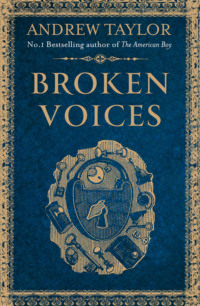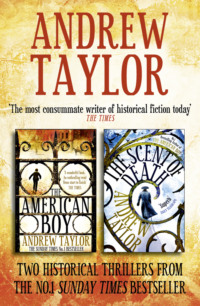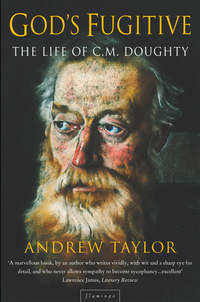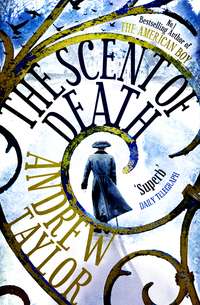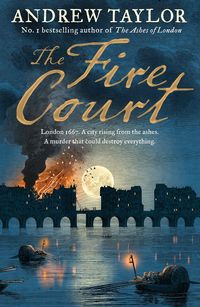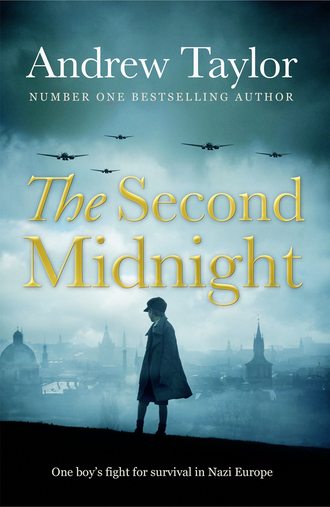
Полная версия
The Second Midnight
‘You know Gerald? The one who looks like Robert Donat? Mary said he didn’t just kiss her – he put his hand on her breasts.’
Hugh yawned. Why Gerald should have wanted to do a thing like that was beyond him. He knew, of course, that ladies’ breasts were somehow taboo: you weren’t supposed to look at them or touch them.
‘You try,’ Meg whispered. A trace of irritation came into her voice when he hesitated. ‘Go on, silly – you’re too young for it to matter.’
Stung by the reference to his age, Hugh laid his hand on Meg’s left breast. To his surprise, it felt quite firm – he had expected it to be fragile. Meg squirmed beneath him, forcing the pressure to increase.
‘Put your hand inside my nightie,’ she said. ‘That’s the proper way to do it.’ She fumbled with the buttons, seized Hugh’s hand and thrust it inside.
‘I’ll make you cold,’ Hugh objected.
‘It doesn’t matter. Rub it.’
He obeyed. Beneath his hand, the nipple grew hard. When he pointed this out to Meg – he was worried that he was damaging it in some way – she said it didn’t matter: nipples often went like that when it was cold. His hand warmed up, but the nipple remained hard.
Two late nights had left them both with a backlog of tiredness. Their breathing became slower and heavier; Hugh’s mind slid sideways into a waking dream. Suddenly he jerked awake.
‘I’d better go.’
Meg’s arms tightened around him. ‘Stay for a bit longer, Hugh. You’re lovely and warm.’
‘Just another minute.’
This time sleep enveloped them both completely. Hugh dreamed that he and Hiawatha were at Buckingham Palace, receiving medals from the King. Neither of them heard the slam of the front door when Stephen came in, or the movements downstairs as he and their parents prepared for bed.
Neither of them heard anything at all until Meg’s door was flung open and her room was flooded with light.
A quite extraordinary thing happened just before breakfast: the telephone rang.
Alfred Kendall was upstairs in Hugh’s room at the time. He broke off in mid-sentence and hurried downstairs. But Muriel got to the dining room first and he was forced to listen to one incomprehensible side of the conversation which ensued. Meanwhile, the smell of burning bacon grew stronger.
‘I’ll come at once,’ Muriel said; her voice was unusually decisive. ‘Meg can pack for me and come over later with the suitcase.’
‘Who was that?’ Kendall demanded before his wife had time to replace the receiver. ‘Where are you going?’
She pushed past him into the smoke-filled kitchen and turned off the gas ring.
‘It was Bunnings, dear. Aunt Vida had one of her turns in the night. A minor stroke, probably.’
The same thing had happened last year. Aunt Vida refused to go into hospital and Muriel had spent two weeks in Richmond looking after her.
Kendall grunted. ‘You’ll have to go, of course.’
It was damned inconvenient but he had no alternative. He knew what women were like: Vida was quite capable of leaving her money to a home for sick parrots, just to spite him; and she would as well, if she felt the Kendalls weren’t giving her the attention she deserved. He also suspected – though he barely admitted the suspicion to himself – that Muriel would go to Richmond whatever he said.
‘I don’t know how long I’ll have to stay. But Meg will look after you – she’s quite a good little cook now. Besides, you’ll get your main meal at lunchtime.’
‘What about Hugh?’
‘He’ll have to look after himself during the day.’ She avoided his eyes and wiped her hands on the apron. ‘After all, you’ll be there in the evenings.’
‘Mr Stanhope-Smith?’ The voice sounded doubtful.
Michael looked up. Kendall hovered over him with an anxious smile on his face. Obviously he had been expecting a man of his own age.
‘Captain Kendall?’ Michael stood up, his hand outstretched. ‘How d’you do?’ He hadn’t described himself over the phone; he had merely said that he would be sitting alone at a table near the band in the Coventry Street Lyons, with a copy of The Times open at the crossword but upside down, in front of him.
They sat down and Michael passed him the menu.
‘I haven’t ordered yet. I don’t know what you’d like to drink. I don’t think much of their wine list but they certainly know how to keep their Bass.’
He steered the conversation into neutral channels until their food arrived. Kendall said little at first, but Michael persevered; he listened in deferential silence as his guest gave his opinions about the state of the weather and the deficiencies of modern youth. By the time the soup arrived, Kendall’s nervousness had evaporated and he was giving Michael the benefit of his views on the servant problem.
He sucked noisily at his soup. ‘I blame the war, you know,’ he confided. ‘It gave the working classes a grossly inflated view of their own value.’
Michael seized the opportunity to introduce another topic. ‘Sir Basil tells me you were in the Pay Corps, sir.’
Kendall nodded. ‘They also serve, eh? Of course I applied to be sent to France, time and time again. They always turned me down on the grounds I was more useful where I was.’
‘Of course.’ Michael tried to look sympathetic. Then he abandoned finesse. ‘You’re probably wondering why I asked Sir Basil to arrange for me to meet you.’
Kendall laid down his soup spoon. ‘He said it was something of national importance.’
‘Perhaps I should explain, sir. But I must stress that what I’m going to say is completely confidential and must remain so. I’m connected with the Foreign Office and I have a proposition for you. If you decline it, which of course you may, I must ask for your word that you will immediately forget this meeting has taken place.’
‘You can rely on my discretion entirely, Mr Stanhope-Smith.’
‘Then may I begin by asking you a few questions?’
Kendall nodded gravely. He sat up straight in his chair and wiped his moustache with his napkin.
Michael cleared his throat to conceal his desire to smile. ‘Do you make regular visits to Czechoslovakia on business?’
‘Until very recently, I’ve been going two or three times a year. Bohemian glass is my bread and butter, you understand – and my father’s before me.’ Kendall chewed his lower lip. ‘But I don’t mind telling you that fellow Hitler’s made my life damned awkward in the last few months. I’m thinking very seriously of taking my business elsewhere.’
‘But even now, if you were to visit Czechoslovakia for a week or two, it would hardly seem strange to the authorities there?’
‘Not at all.’ Kendall looked away. ‘In fact, I wish I could afford to do so. One or two of my contracts have been cancelled recently. I’ve a feeling that, if I could see the people concerned on the spot, I might be able to get them to reconsider their decisions. At least I’d have a sporting chance.’
‘Do you speak Czech?’
‘I can get by – both in Czech and German.’
Michael nodded. ‘Excellent. Now – you don’t mind me asking what your views are on Hitler, do you?’
Kendall shrugged. ‘Why should I? At first I thought these Fascists had a lot of good ideas. Look at Mussolini, for example – at least he’s made Italian trains run on time. Their methods seem to get results. But after the Anschluss, I began to change my mind. Only a fool would think that Hitler means to stop with Austria and the Sudetenland. Churchill’s right: the only argument the Boche respect is cold steel.’
‘Quite so.’ Michael paused while the waiter brought his lamb cutlets and Kendall’s steak. The interruption gave him time to consider his tactics. It would be better not to mention the money, he thought, not at this stage. He was able to fit Kendall into a category now: the warlike attitude was often found in men of his generation who had done no actual fighting in the Great War; the bitterness of combat was an abstraction to them, as it was to Michael himself.
Kendall waggled his fork in Michael’s direction. ‘Mark my words, we shall be at war before the end of the year, whatever that fool Chamberlain thinks. My eldest boy is joining the Territorials already. I’ve always said—’
‘The more preparations we can make beforehand, the better our chances will be,’ Michael cut in. ‘You agree?’
‘Of course. If only—’
‘And preparations have to take place right across the board. We at the FO, for example, are not concerned with the purely military aspect, naturally. Our fundamental purpose is to gather information from abroad. In wartime, the purpose remains the same but the – ah – methods of collection have to be adapted to meet the circumstances. Particularly in those countries where we can have no formal diplomatic representation.’
Michael chewed a mouthful of lamb, covertly watching Kendall’s face. The man looked as if he nourished his inner self on a diet of John Buchan and Sapper: surely he wouldn’t be able to miss such an obvious appeal to pick up a cloak and dagger for his country?
Kendall stiffened in his seat; his nostrils flared. ‘Does this mean you work for the—’
‘It’s better not to mention names,’ Michael said quickly. ‘Even in private.’ This was one of Dansey’s recruiting principles: that one should leave as much as possible to the recruit’s imagination.
‘What do you want me to do?’
Michael leaned forward. ‘Our concern is to establish channels of communication which will remain open when the usual ones are closed. At present we need someone to act as a courier – to take a small package to someone at the other end and to bring back something else. It may be just the one time – or there may be others. You’ll appreciate that it’s difficult to be definite in these matters. There’s no risk involved, but it’s vital that the courier should be a man whom we can trust absolutely – and who has a cast-iron reason for going there in the first place.’
Kendall gave a little grunt of satisfaction. Michael decided that, if one was going to lay on flattery, there was no point in being niggardly about it.
‘When I consulted Sir Basil, yours was the first name he mentioned.’ As he spoke, Michael wished he could afford the luxury of a job where lying was not part of the stock in trade. Try Kendall, Cohen had said. He’s a wretched little man, but he’ll fit your bill.
‘Could I have a day or two to think things over?’
Michael shook his head. ‘I’m sorry, Captain Kendall. Time is the one thing we haven’t got. I need a decision now. If you turn it down, I’ll try someone else. I must get a man in Prague by the weekend.’
Michael’s bluff partly succeeded: Kendall looked faintly aggrieved at the thought that there might be other candidates for the job.
‘Would you be able to leave at such short notice?’
‘My passport and visas are all in order, if that’s what you mean. And it wouldn’t take long to tie up any loose ends at the office. But there is one problem …’
‘If you accept our offer, we would naturally take care of your expenses.’ Michael smiled apologetically. ‘And we usually make some sort of token payment for such services.’
Kendall sawed violently at his steak. ‘I don’t deny the money would be useful. But it’s not that. You see my wife had to go away this morning to nurse an aunt of hers. Going to Prague this weekend would mean leaving my younger son alone. I can’t do that: he’s – ah – he’s not at school at present.’
There was a curious inflection in Kendall’s voice and it puzzled Michael. It was almost as if the man was afraid of what his son might do if left alone, rather than of what might happen to him.
‘I deeply regret,’ Kendall said through a mouthful of pink meat, ‘that I may have to decline your offer.’
The solution to the difficulty suddenly occurred to Michael. It would remove Kendall’s little difficulty at a stroke – and it might even increase his professional cover in Czechoslovakia. Dansey could hardly object.
He took a long swallow of his beer and wiped his mouth with his napkin. He waited until Kendall’s jaws had stopped moving.
‘I suppose there’s no reason why you shouldn’t take the boy with you.’
Three
‘For God’s sake!’ Kendall snapped. The Czech matron at the next table looked curiously at them. He lowered his voice to a hiss. ‘Has no one ever told you that it’s rude to stare?’
Hugh looked away from the crowd in the hotel foyer. The sight of his son’s bowed head brought Kendall’s exasperation to the boil: at that moment he could have willingly strangled the boy. He lit another cigarette from the stub of the old and glanced once again towards the revolving door which led to Vaclavske Namesti. Everyone in Prague seemed to be here except the man he wanted.
The presence of Hugh was only part of the reason for his irritation, but he was a convenient focus for Kendall’s discontent. Hugh was simply not to be trusted: he was a thief and a liar; and after Sunday night Kendall had begun to suspect that he was something worse as well.
His mind shied away from the memory of finding his son in his daughter’s bed. It seemed to Kendall that whenever he closed his eyes he was doomed to relive that instant when he turned on Meg’s light.
Two heads, one fair, one dark, on the same pillow.
According to Hugh, he had crawled into bed with her to get warm; and she had been so soundly asleep that she hadn’t woken up. According to Meg, on the other hand, she was the one who had been cold; and she’d persuaded him to come to bed with her.
Kendall had beaten them both: they were lying; they were conspiring against him; they were breaking his rule forbidding one child to go into another’s bedroom. He felt instinctively that Hugh must have taken the initiative – after all, he was the boy. The top of Meg’s nightdress was unbuttoned. It looked almost as if Hugh’s hand was inside, resting on her breasts.
The thought was monstrous and Kendall tried to push it away. But one thing was clear: Hugh needed strict and constant discipline. Kendall could not risk leaving him in Twickenham while he was away. Meg would have been completely at his mercy.
After they returned from Prague, he would have to find a long-term solution to the problem of Hugh. It was as if the boy had a highly contagious disease: it was imperative to isolate him from the rest of the family. Kendall wondered whether the merchant navy might be a possibility.
He pulled out his watch: it was nearly three o’clock. He suspected that Stanhope-Smith’s man was going to let him down again. It would be the third time. Stanhope-Smith had told him to wait in the foyer of the Hotel Palacky for an hour after lunch and an hour after dinner, until the contact made his approach.
The big glass door revolved. Cold air swept into the lobby. Kendall swore under his breath as three women filed in.
‘Can’t you sit up straight?’ he said to Hugh. ‘Don’t slouch.’
‘Smim si pripalit?’ said a husky voice behind him.
Kendall swung around. His eyes widened when he saw that it was a woman. She was short and her plumpness was accentuated by a heavy fur coat with an upturned collar; she had a snout-like snub nose and a faint but distinct moustache. At first Kendall thought her words must be a coincidence. But then he saw that she was tapping the butt of her cigarette against a silver case. The case was angled towards him so he could see the design of four interlocking lozenges engraved on the side.
‘Prosim,’ he muttered politely, fumbling in his waistcoat pocket. His fingers shook slightly as he opened the silver matchcase. He nearly forgot to let her see the lozenges on its lid.
‘What is your room number?’ she murmured in English just before the match touched the tip of the cigarette.
‘Twenty-three.’
She blew out words and smoke simultaneously: ‘Meet me there in twenty minutes.’ Her voice returned to its normal speaking level: ‘Dekuji.’
Kendall bowed. She turned and walked to the bar. From the back she looked like a hedgehog in patent-leather high-heeled shoes.
The fat woman with the overpowering scent stood in the centre of the hot and ill-proportioned room which Hugh shared with his father. She jabbed her thumb towards Hugh and broke into a rapid stream of Czech.
His father replied haltingly in the same language, but she interrupted him before he could say more than a few words. As she spoke she gestured towards Hugh; he wished he could understand what she was saying.
At last his father shrugged. ‘Hugh, I want you to go for a walk for an hour. You can take the guidebook. And make sure you behave yourself.’
Hugh grabbed his coat, scarf and cap and almost ran out of the room. He was so relieved to get out of his father’s presence that he hardly bothered to wonder why he had been sent away. He ran down the stairs, through the lobby and into the street.
For a moment he stood at the head of the steps which led down from the revolving door, savouring the sights and sounds of freedom. It was the first time he had got away from his father since they had left London. At the far end of the broad road he could see a statue of a man on horseback. The strangeness of everything gave him a jolt of pleasure. He darted down the steps and began to run towards the statue.
The pavements were crowded and slippery. As he dodged between a linden tree and a stall selling spicy sausages, he skidded on a pile of dirty snow. At the last moment he clutched at the tree and saved himself from sprawling on the surface of the road. A car swerved to avoid him. A bicycle bell jangled angrily.
Hugh laughed aloud and ran on.
‘We could have talked in Czech,’ Kendall said peevishly. ‘The boy wouldn’t have understood.’
Madame Hase settled herself in the only armchair that the room possessed. ‘My English is much better than your Czech. Besides, if we talk in English, there is less chance that an ear at the keyhole would be able to understand.’ Her voice hardened. ‘Why did you bring the boy? It is very foolish. I was not warned.’
‘It was decided in London,’ Kendall said curtly. He was annoyed that his contact had proved to be a woman, largely because the fact surprised him. Her haughty attitude made things worse; he was damned if he was going to let a female talk to him like that.
‘You have brought the package? There was no trouble with customs?’
Kendall nodded. He crossed the room to the basin in the corner and picked up the shaving brush which stood on the glass shelf above it. The handle was made of metal. He unscrewed the base and extracted the small chamois leather bundle.
‘It’s stitched together. Do you want me to open it?’
‘Of course.’
He slit the neck of the bag with the blade of his penknife. Madame Hase snatched the bag from him and upended it over the palm of her hand. Seven cut diamonds, small but flawless, trickled out. She sucked in her breath sharply. For the first time she smiled.
‘Satisfied?’ Kendall asked with heavy sarcasm.
‘Perfectly.’ Her pudgy fingers clenched around the stones, as if she was trying to squeeze the virtue out of them. ‘But we may have a problem at the other end of the transaction.’
‘What do you mean?’ Kendall had assumed that she would hand over the papers now she had the diamonds; he knew nothing about possible problems. Now he came to think about it, he knew very little about this whole business. Stanhope-Smith hadn’t been very informative.
‘I have not yet obtained the information.’ Madame Hase’s English might be fluent, but she pronounced it as if it was a dead language, with equal stress on each syllable and without inflections. ‘The principals with whom I am dealing lack confidence, both in me and in London. They do not trust me because I am a woman and because my origins are bourgeois. And of course they have only my word that London is the source of these.’ She unclasped her hand and prodded the little pile of diamonds.
Kendall shrugged. ‘I’d have thought diamonds were diamonds wherever they come from.’
‘Not if they come from Berlin. That is their worst fear, I think. But these men see enemies everywhere. Can you blame them? England and France were our allies; they guaranteed to maintain our borders; and then they betrayed us at Munich because of a ranting bully with a big stick. Or perhaps they think these diamonds come from closer home. The Deuxième Bureau has never loved us and Moravec is a man who likes to hold all the strings in his hand. No one trusts our government any more: those Fascist toadies dissolved the Communist Party just before Christmas.’
Kendall took his time over filling and lighting a pipe. A familiar sense of helplessness swept over him; and that as usual made him angry. As far as he could see, the only course open to him was to return to London, empty-handed. He had a shrewd suspicion that Madame Hase meant to keep the diamonds whatever happened. He could hardly force her to return them; she would probably shriek the place down and accuse him of trying to rape her.
If he returned to London without those papers (whatever they were), he would be back to square one: he would have failed Stanhope-Smith; there would be no more lucrative little jobs. Worst of all, England would suffer because of his failure.
‘Is there nothing we can do to convince them that we’re all above board?’ He spoke more loudly than he had intended; Madame Hase looked at him sharply.
‘Perhaps,’ she said after a pause. ‘We have one strong card in our hand: they need help from somewhere. Any resistance network needs money and it needs access to the outside world. We thought Moscow would provide both, but they are being dilatory and time is running out. You are here and you can offer what they want.’
‘Would it help if I met them?’
‘It might. But that would take time to arrange – and there might have to be several meetings.’ A fit of coughing interrupted her. ‘It would help if you were more important. They may consider that a mere messenger boy can have nothing useful to say to them.’
Kendall’s face became mottled. Madame Hase appeared not to notice.
‘But of course they do not know what your rank is,’ she continued. ‘Nor do I. I simply draw inferences.’
‘I fail to see—’
There was a tap on the door.
Madame Hase snapped open her handbag, dropped in the diamonds and pulled out something else. A sense of unreality caught Kendall by the throat, making him literally gasp for breath. She was holding an automatic pistol.
This time it wasn’t a tap: it was an impatient double knock. Madame Hase concealed the pistol in the folds of her fur coat and signalled to him to open the door.
It was almost with a sense of anticlimax that he found one of the pageboys waiting in the corridor.
‘Pan Kendall?’ The youth held out a dented silverplated salver. On it was a flimsy grey envelope addressed to Kendall at the Hotel Palacky.
Kendall took the letter, dropped a tip on the tray and closed the door. He ripped open the envelope and extracted the single sheet of paper it contained. Madame Hase returned the automatic to her handbag.
‘Oh, my God.’ Kendall suddenly sat down on the edge of the bed. ‘What the hell are we going to do?’
When Hugh had looked at the statue, he went on to the end of Vaclavske Namesti. The broad avenue ended in a T-junction. He turned right, hoping eventually to reach the river.
Before he came to the Vltava, he emerged into a rectangular open space. He consulted the guidebook and decided he might be in Charles Square. The centre was laid out as a public park. The snow was still thick on the grass, contrasting bleakly with the bare branches of the trees.
A covered fiacre clopped past him; the nearside wheels of the carriage sprayed his legs with slush. Hugh wiped it off as best he could with his handkerchief. He was beginning to feel cold. He sidled nearer to a brazier on the corner of the park, hoping to steal a little heat. Chestnuts cracked and sizzled above the glowing charcoal. Hugh’s mouth watered. It was a long time since lunch. He wished his father had given him a little pocket money. Aunt Vida’s half-crown wouldn’t be much use here.


